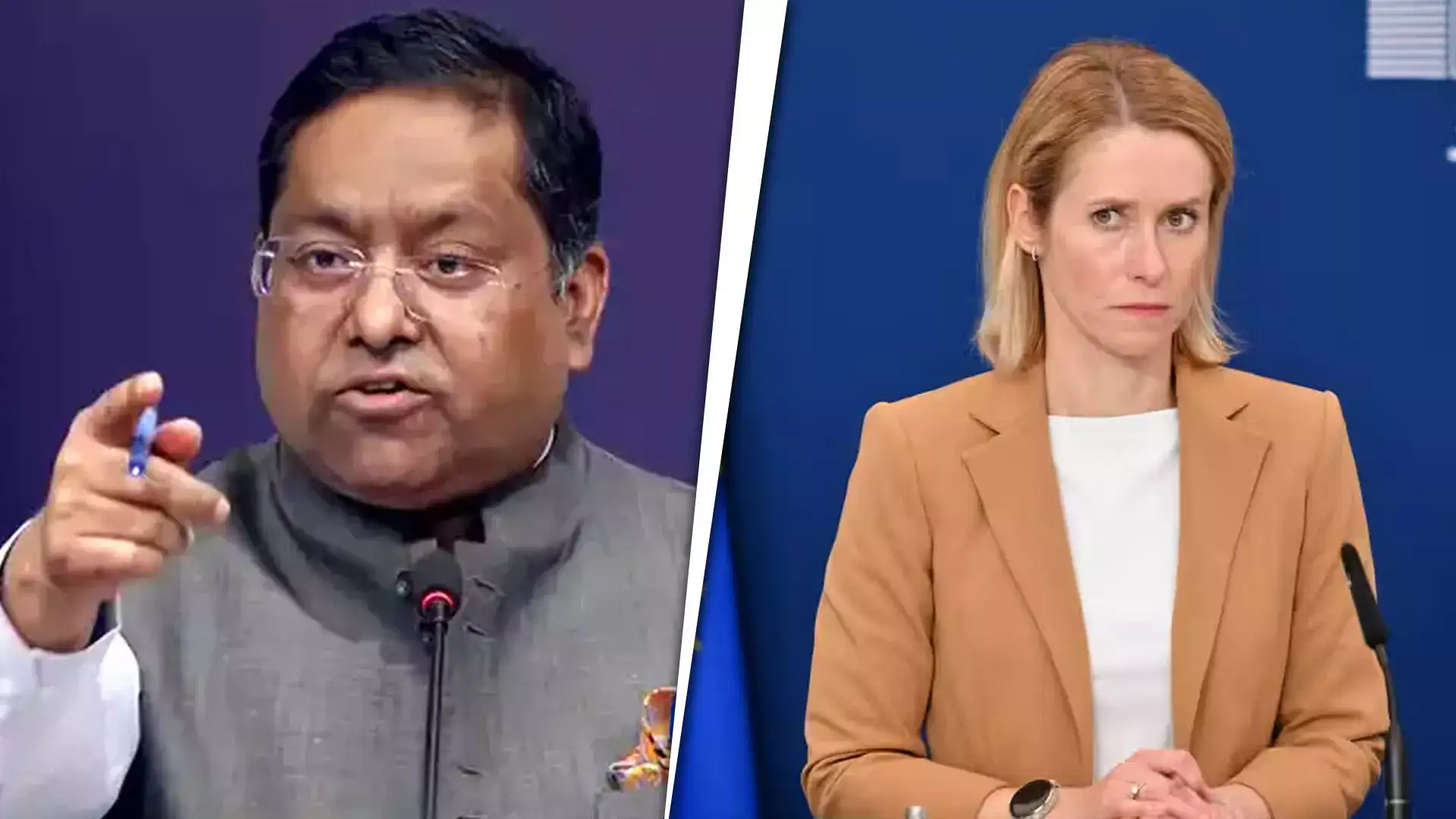Politics
India-EU Tensions Rise Over Russia’s Zapad-2025 Military Drills

The ongoing military drills known as Zapad-2025 have sparked a significant diplomatic dispute between India and the European Union. Kaja Kallas, the Vice President of the European Commission, publicly criticized India’s participation in these exercises, alongside its continued imports of Russian oil, labeling them as “obstacles” to enhanced cooperation between India and the EU.
In a robust response, India pointed out that several NATO members, including the United States, also attended Zapad-2025 as observers. This counterargument has drawn attention to what India perceives as selective outrage from European leaders regarding the intricate geopolitical landscape.
India’s involvement in the Zapad-2025 drills, which are set to take place in September 2025, has been framed by Indian officials as a matter of enhancing military interoperability and addressing counter-terrorism. This position underscores India’s strategic balancing act, as it navigates relationships with Russia, Europe, and the US amid a fragmented global order.
Geopolitical Implications of Zapad-2025
The Zapad-2025 exercises, organized by Russia, are part of a series of large-scale military maneuvers that typically involve multiple nations and aim to strengthen military cooperation. In recent years, such drills have increasingly become a platform for showcasing military capabilities and fostering alliances.
India, which stands as the second-largest buyer of Russian crude oil, finds itself at a crossroads. The nation’s dependence on Russian energy has drawn scrutiny from Western nations, especially as they seek to isolate Russia economically following its actions in Ukraine. India, however, maintains that its energy imports are essential for its national interests and economic stability.
Kallas’s remarks reflect broader concerns within the EU regarding the implications of India’s military cooperation with Russia. European nations have been actively seeking to reduce their reliance on Russian energy sources, making India’s stance particularly contentious.
Challenges in India-EU Relations
The diplomatic spat highlights the increasing complexities within India-EU relations as both sides attempt to navigate their respective geopolitical interests. While both India and the EU share a commitment to democracy and human rights, contrasting approaches to foreign policy create friction.
The Indian government emphasizes the importance of strategic autonomy, which allows it to engage with various global powers while maintaining its independence in decision-making. This approach is essential for India as it looks to bolster its defense capabilities and expand its influence in the Indo-Pacific region.
The ongoing tensions are indicative of a broader trend in international relations, where nations must balance competing alliances and interests. As India continues to engage with both Russia and Western nations, the outcome of these diplomatic challenges will likely shape future collaborations and conflicts in the region.
As the Zapad-2025 drills approach, the world will be watching closely to see how India manages its intricate relationships and whether the EU will adjust its stance in response to India’s strategic priorities.
-

 World4 months ago
World4 months agoSBI Announces QIP Floor Price at ₹811.05 Per Share
-

 Lifestyle4 months ago
Lifestyle4 months agoCept Unveils ₹3.1 Crore Urban Mobility Plan for Sustainable Growth
-

 Science3 months ago
Science3 months agoNew Blood Group Discovered in South Indian Woman at Rotary Centre
-

 World4 months ago
World4 months agoTorrential Rains Cause Flash Flooding in New York and New Jersey
-

 Sports3 months ago
Sports3 months agoBroad Advocates for Bowling Change Ahead of Final Test Against India
-

 Top Stories4 months ago
Top Stories4 months agoKonkani Cultural Organisation to Host Pearl Jubilee in Abu Dhabi
-

 Science4 months ago
Science4 months agoNothing Headphone 1 Review: A Bold Contender in Audio Design
-

 Top Stories4 months ago
Top Stories4 months agoAir India Crash Investigation Highlights Boeing Fuel Switch Concerns
-

 Sports3 months ago
Sports3 months agoCristian Totti Retires at 19: Pressure of Fame Takes Toll
-

 Business4 months ago
Business4 months agoIndian Stock Market Rebounds: Sensex and Nifty Rise After Four-Day Decline
-

 Politics4 months ago
Politics4 months agoAbandoned Doberman Finds New Home After Journey to Prague
-

 Top Stories4 months ago
Top Stories4 months agoPatna Bank Manager Abhishek Varun Found Dead in Well









